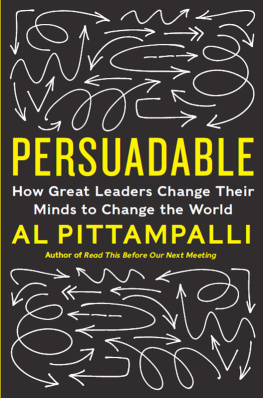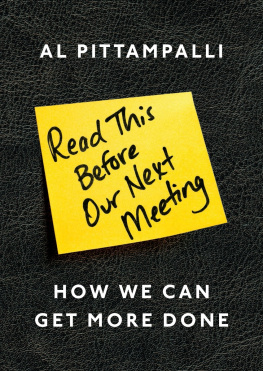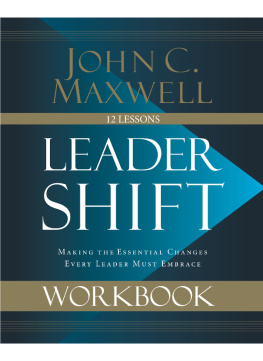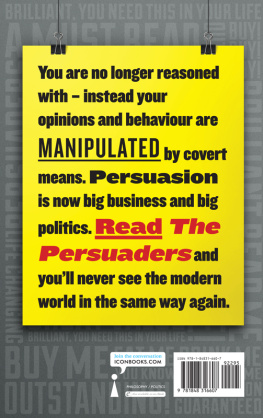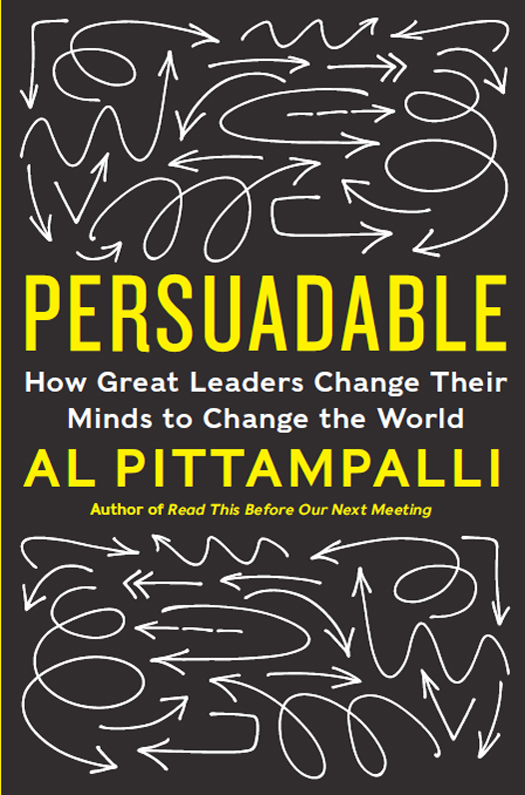For Faigy
Contents
Guide
A s President Obama and his top advisers contemplated how to attack the Pakistani compound allegedly housing Osama bin Laden, they began to discuss the possibility of a covert raid. This option was complex, and it put troops in imminent danger, but it also carried the potential for a great reward. In contrast to an unmanned drone strike or a B-2 bomber mission, the raid team would be able to positively identify the enemy, leaving no doubts that the man being targeted was in fact bin Laden. A raid team would also be able to collect any physical intelligence residing on the premises, a potential treasure trove of information that might aid in thwarting future terrorist attacks. But what if the Pakistani militarywhich was stationed dangerously close to the compoundengaged the raid team in a firefight? What if American troops were injured or killed? What if bin Laden wasnt there? These were frightening questions that required answers. So, to further investigate the raid option, the administration called in the man who would ultimately be tapped to lead it, the commander of the Joint Special Operations Command (JSOC), Admiral William McRaven.
McRaven was an impressive figure. During his tenure leading JSOC, the success rate for missions in Iraq and Afghanistan surged from 35 percent to over 80 percent. McRavens teams had been responsible for the capture of Saddam Hussein and the rescue of Captain Richard Phillips from Somali pirates (along with many classified accomplishments still unreleased). And McRaven certainly looks the part. Hes six foot one, broad shouldered, with perfect posture and an impeccable uniform. His three stars (soon to be four) only add to his domineering presence. But there was one thing about McRaven that was particularly exceptional, something that surprised many in the administration.
His humility.
McRaven was modest, open to suggestion, and willing to change his mind. In fact, from the very beginning, McRaven freely admitted that he didnt have all the answers. After explaining the mission parameters for the first time, McRaven confessed, Mr. President, we havent thoroughly tested this out yet and we dont know if we can do it, but when we do, Ill come back to you and Ill tell you straight up. Then McRaven did just that. He tested and concluded that the mission was viablebut still reminded everyone of its fallibility. Theyre gonna land on the compound and something is going to go wrong. Theyre going to have to improvise, change the plan, go to Plan B, or wriggle their way out of a sticky situation.
Over many meetings, the president and his team grilled McRaven, challenging his plans, second-guessing his thinking, looking for weaknesses. McRaven didnt seem to mind; he appeared to approach this scrutiny without ego. He didnt agree with every criticism, but Undersecretary Michle Flournoy noted that in response to a good question, McRaven would calmly respond, You know, I havent thought about that, but I need to.
And McRaven wasnt just paying lip servicehe made substantial changes to his plans on the basis of others input. For example, when McRaven proposed having backup Chinook helicopters stationed on the Afghan-Pakistani borderto minimize the blowback from the Pakistani government for infringing on its sovereigntyPresident Obama countered that the SEALs needed backup more readily available in the event they had to fight their way out. McRaven was persuaded. The Chinooks would be flown deep into Pakistan, closer to the Abbottabad compound, ready to move.
On April 29, 2011, after a careful deliberation process with his team, President Obama officially ordered the Seal Team Six raid overseen by Admiral William McRaven. Later, the president said it was ultimately his confidence in McRaven that made the difference in going ahead with the raid. He just never looks like hes surprised by anything. When asked afterward to describe what happened, his explanation was drama free: the team had a contingency plan, executed that contingency plan, and continued on with the mission. And continue they did, successfully completing one of the most important military operations in United States history.

THIS IS A BOOK about persuadability, the genuine willingness and ability to change your mind in the face of new evidence. Being persuadable requires rejecting absolute certainty, treating your beliefs as temporary, and acknowledging the possibility that no matter how confident you are about any particular opinionyou could be wrong. It involves actively seeking out criticism and counterarguments against even your most long-standing favored beliefs. Most important, persuadability entails evaluating those arguments as objectively as possible and updating your beliefs accordingly. In Persuadable, Ill argue that persuadability is a vastly underappreciated advantage in business and life. Its one of the most critical skills of modern leadership. But I wont just explain why you should be persuadable. Distilling cutting-edge research from cognitive and social psychology, Ill show you precisely how. Specifically, youll learn the seven practices of persuadable leaders:
Consider the Opposite
Update Your Beliefs Incrementally
Kill Your Darlings
Take the Perspectives of Others
Avoid Being Too Persuadable
Convert Early
Take On Your Own Tribe
These simple yet powerful habits have accelerated the path to success for some of the best leaders in the world, and they have the potential to do the same for you.
The focus of this bookchanging our own mindsmay surprise you. And its understandable why: its unusual. Just stroll through the business section of any bookstore, and youll be hard-pressed to find any books dedicated to persuadability. Instead, youll find dozens of books promoting persuasiveness. Shelves are jam-packed with bold advice for converting others to your cause, featuring audacious titles like Get Anyone to Do Anything, How to Win Friends and Influence People, and my personal favorite, How to Persuade People Who Dont Want to Be Persuaded. But as we all relentlessly pursue the one word, tactic, or principle that will help us convince someone else, we forget to ask ourselves an obvious question: is it possible Im the one who needs to be convinced? What invaluable, potentially innovative information am I missing by focusing exclusively on persuading others?
One of the reasons why leaders fail to ask these questions is that they defy our traditional leadership archetype. Strong leadersour culture teaches uspossess three Cs: confidence, conviction, and consistency. Those qualities are perhaps most famously embodied by General George S. Patton, the headstrong authoritarian with a big ego, unmatched audacity, and immutable resolve.
Which is why if you read the accounts of Admiral William McRaven, you might be as stunned as I was to learn that the man who led the daring mission to get Osama bin Laden is nothing like Patton. In fact, hes nearly the opposite. McRaven is vigilant about being overconfident. He seems fully prepared to abandon an idea that no longer makes sense, and he doesnt seem to care much at all about being consistent. Is it merely an anomaly that the most successful (now retired) military leader in the world doesnt fit the traditional leadership archetype? Or is it a pattern? Lets test the notion with a couple of examples featuring two of the most successful leaders in the worlds of business and finance: Jeff Bezos and Ray Dalio.
On the surface, Jeff Bezos seems like a perfect example of the traditional leadership archetype. Bezos turned Amazon from a figment of his imagination into a multibillion-dollar online retailer that sells virtually any product you can think ofall while disrupting countless industries along the way. You would think that Bezos must have had Colonel Sanderslike certainty in his vision to make that happen. (The idolized founder of KFC, as the much-repeated legend goes, had so much faith in his fried chicken that he put up with being rejected over 1,000 times before he made his first door-to-door sale.) Bezos too must be a man equally unwilling to change or give up on his ideas. Right?

